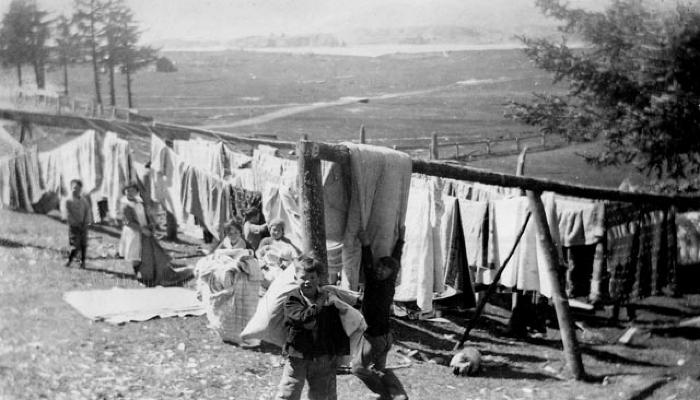Laundry — Iqaiyat

The Alutiiq word for laundry comes from the word for dirt, iqaq, and literally means “dirties.” Anyone with a family knows that laundry is a never-ending chore, but in the days before modern washers and dryers, it was an exhausting, daylong project. Alutiiq women remember carrying water and lighting fires in their wood-burning stoves to heat it for washing. With a tub and a washboard they scrubbed clothing in hot water to remove the grime. For soap, they used Fels Naptha, a bar soap that when boiled and mixed with baking soda makes a gel detergent. After scrubbing, they twisted the clothing to remove the water or ran each garment through a ringer, before hanging it to air dry. The first mechanical washers—gas-powered machines—appeared in Alutiiq villages in the late 1940s and were a huge work savings to those who could afford one.
Laundry bluing, a powdered chemical that helped to whiten clothes, was available in Alaska by the late 1800s. Although some Alutiiq people may have used bluing in their laundry, others appear to have turned the vibrant blue powder into paint. The nineteenth-century spruce root hat recently purchased by the Alutiiq Museum and the Anchorage Museum of History and Art is covered with a powdery blue substance that may be laundry bluing. Around the world, bluing was a popular source of blue pigment, particularly among Pacific Rim cultures in the 1880s and 1890s.
